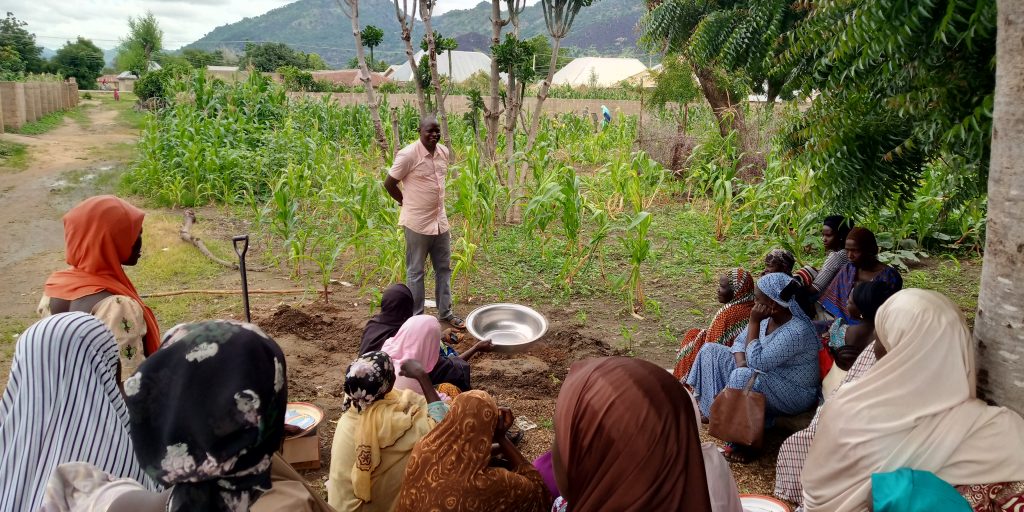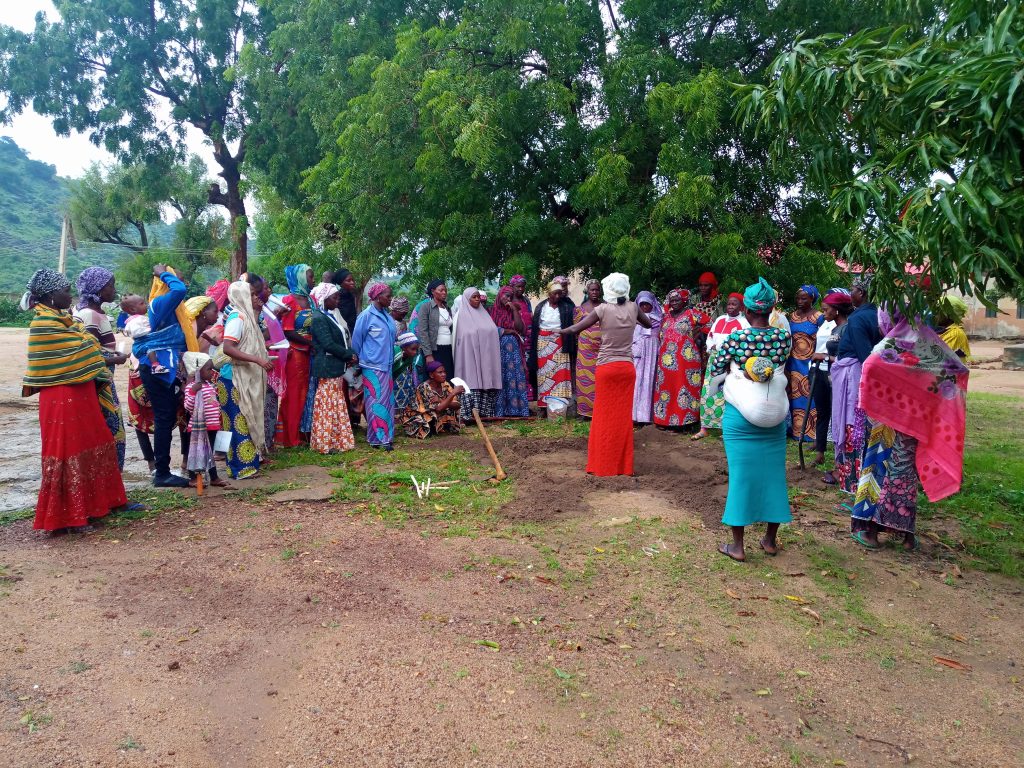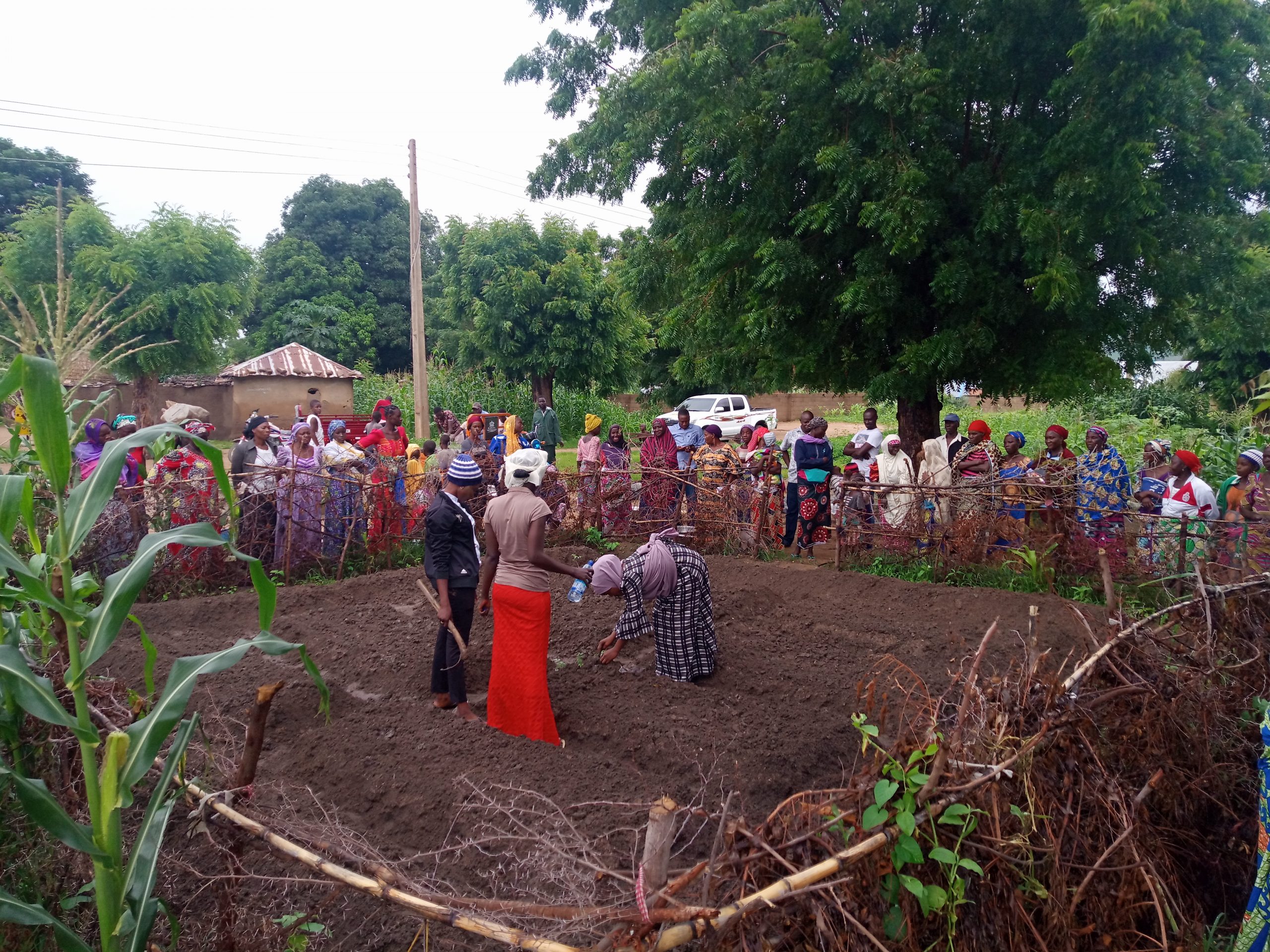Mothers around the world are busy, and the Nuru Nigeria Women’s Farmer Association members are no different. They invested in two days of permaculture training to learn how to produce more food at home using a minimal amount of money and time. Permagardens use permaculture and bio-intensive agriculture principles to create a productive kitchen garden that produces vegetables and spices used daily in home cooking. Nuru Farmer Association members have found that permagardens already save them time and money, as they decrease trips to the market, and the garden is low maintenance.
The permagarden method has been widely utilized and proven to be effective by Mercy Corps using the methodology outlined in the TOPS manual, which was later scaled by The Food For Peace Fund. Additionally, Peace Corps, Feed the Future, and FHI 360 have all utilized this versatile technique that is not only producing nutritious food at families’ doorsteps, but is climate smart, uses all local material for sustainability, and demonstrates resilient approaches to food production.

To improve family well being, women learn how to make compost, manage water in the landscape, do double digging, and apply locally available organic soil amendments. They also learn about nutrition basics and bio-intensive planting techniques. Nuru engages participants with practical trainings at demonstration plots, which then continue to serve as local resources in their neighborhoods and provide a visual explanation of the theories, allowing the women to make adjustments to their use of the techniques at home.
One of the activities from the Peace Corps permagarden training manual has the facilitator drop a red ball and a tomato at the same time. The women are encouraged to discuss the characteristics of each object, noting similarities and differences, and discussing what made the ball more resilient than the tomato when dropped. Seeing that they can add characteristics to the typical kitchen garden to make it more resilient opens a world of other ideas for the women. A primary goal for this training is helping the women feel that they can learn from both each other’s experiences and Nuru’s trainings to help make their families more resilient to many different challenges beyond food production.
 These trainings provide a useful foundation for building trust and offer a sense of shared understanding as the members of these women’s farmer groups bond and learn together. Over time, as the women work to thrive despite the many challenges of their environment in northeastern Nigeria, the trainings and resultant permagardens will provide a tangible example of resilience to learn from and return to as they share new ideas with one another and continue moving forward in their individual journeys to overcome extreme poverty.
These trainings provide a useful foundation for building trust and offer a sense of shared understanding as the members of these women’s farmer groups bond and learn together. Over time, as the women work to thrive despite the many challenges of their environment in northeastern Nigeria, the trainings and resultant permagardens will provide a tangible example of resilience to learn from and return to as they share new ideas with one another and continue moving forward in their individual journeys to overcome extreme poverty.


